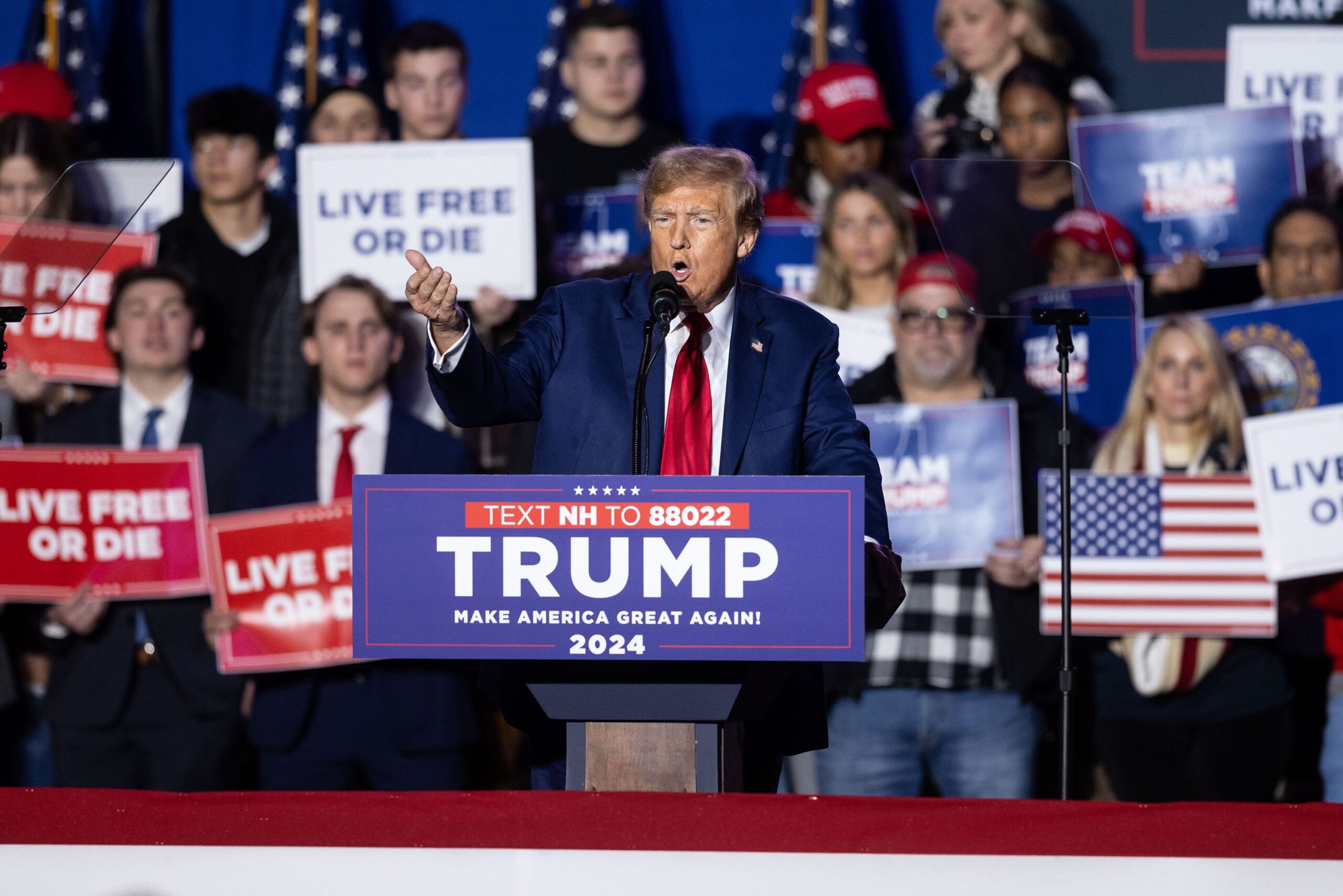Former President Donald Trump’s radical rhetoric, which bears a striking resemblance to Nazi propaganda, coupled with his tendency to align with America’s adversaries and autocrats, presents a unique challenge to his Republican rivals and, ultimately, the American electorate. Trump, who is a strong contender for the next presidency, recently warned that immigrants are “contaminating the bloodline” of the United States. He also echoed Russian President Vladimir Putin’s attempts to undermine American democracy, showing a disturbing deference to the ex-KGB officer accused of war crimes.
Trump’s Comments: A Departure from American Values
Trump’s remarks at a rally in New Hampshire, the first GOP primary state, starkly contradict America’s founding principles and political traditions. They signal that Trump, who previously attempted to overturn the 2020 election results, could potentially adopt an even more radical approach if he secures a second term in the White House. His inflammatory rhetoric could also bolster President Joe Biden’s reelection campaign narrative – that Biden is the only viable option to prevent a return to power by an ex-president who could potentially dismantle US democracy. However, current polls indicate that this strategy is not yet benefiting Biden, as he trails behind Trump in crucial swing states.
The Impact of Trump’s Rhetoric on Democracy
While Trump’s rhetoric may demand a measured response from his critics, it’s crucial to understand his provocative intentions and evaluate the precise threat he poses to democratic values globally. These values are already under siege from autocracies in China, Russia, Iran, and other countries. Ignoring the implications of Trump’s remarks would be a grave error, as they continue to destabilize the political landscape, even with him out of office.
Trump’s Immigration Rhetoric: A Tool for Polarization
Trump’s fiery language on immigration aims to incite hostility and fear against immigrants, exploiting anxieties that the dominance of White, Christian culture is under threat from different ethnic and religious groups. His comments endanger every racial, ethnic, and religious minority during a time of intense political polarization. He also exaggerates the threat posed by undocumented immigrants, capitalizing on the Biden administration’s inability to manage the influx of arrivals at the southern border.
Trump’s Strategy: Provocation and Outrage
Trump’s strategy involves breaking the norms of acceptable political discourse to generate outrage, which energizes his staunch supporters and destabilizes his opponents. He is aware that his speeches, reminiscent of 1930s European fascism, trigger a media frenzy, which he then exploits to convince his supporters that the “left” is conspiring against him, and by extension, them. This reaction from his critics enables him to stir a response that strengthens his position.
Trump’s Increasing Extremism: A Warning Sign
Former Wyoming Rep. Liz Cheney, a Republican who has bravely spoken out against Trump, warns that if Americans reelect him, he may never leave office, leading the country towards dictatorship. Trump’s increasing extremism, his scorching rhetoric, and his promises that would challenge the law if implemented, all serve to maintain his image as an outsider and a rule breaker, which is popular among his supporters. However, these actions also push him further towards the right-wing fringe of US politics.
Trump’s Admiration for Autocrats
Trump’s admiration for current autocrats like Hungarian Prime Minister Viktor Orban, a hero of the “America First” right, suggests a potential model for his future actions. Orban, Putin, and other leaders who advocate for White nationalism, authoritarian rule, and orthodox Christianity, systematically undermine political and electoral systems to consolidate their power and weaken the press and courts — institutions that check their anti-democratic impulses.
Implications for the Republican Party
Trump’s radicalism raises serious questions for his primary opponents, who have hesitated to condemn his threats for fear of alienating GOP voters. It also highlights the failure of the Republican Party to stand up to its leader, who consistently supports US adversaries like Putin. The most pressing question, however, is what it says about America, its political culture, and the mood of its people at this critical juncture in history, that millions of voters appear ready to embrace Trump’s extremism.

